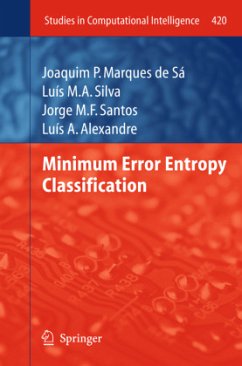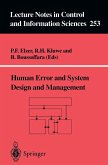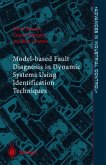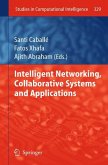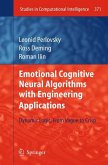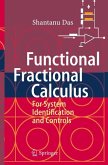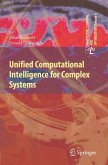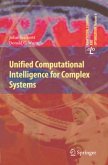This book explains the minimum error entropy (MEE) concept applied to data classification machines. Theoretical results on the inner workings of the MEE concept, in its application to solving a variety of classification problems, are presented in the wider realm of risk functionals.
Researchers and practitioners also find in the book a detailed presentation of practical data classifiers using MEE. These include multi-layer perceptrons, recurrent neural networks, complexvalued neural networks, modular neural networks, and decision trees. A clustering algorithm using a MEE-like concept is also presented. Examples, tests, evaluation experiments and comparison with similar machines using classic approaches, complement the descriptions.
Researchers and practitioners also find in the book a detailed presentation of practical data classifiers using MEE. These include multi-layer perceptrons, recurrent neural networks, complexvalued neural networks, modular neural networks, and decision trees. A clustering algorithm using a MEE-like concept is also presented. Examples, tests, evaluation experiments and comparison with similar machines using classic approaches, complement the descriptions.
From the reviews:
"The paper deals with the theoretical background and corresponding applications of minimum error entropy (MEE) to different data classifications models ... . Many examples and tests are also provided to illustrate the practical application of MEE in concrete classification problems. The book is dedicated to researchers and practitioners working on machine learning algorithms interested in using MEE in data classification." (Florin Gorunescu, zbMATH, Vol. 1280, 2014)
"The paper deals with the theoretical background and corresponding applications of minimum error entropy (MEE) to different data classifications models ... . Many examples and tests are also provided to illustrate the practical application of MEE in concrete classification problems. The book is dedicated to researchers and practitioners working on machine learning algorithms interested in using MEE in data classification." (Florin Gorunescu, zbMATH, Vol. 1280, 2014)

